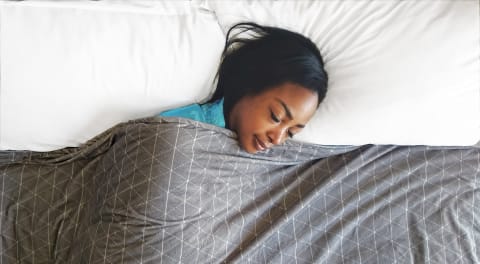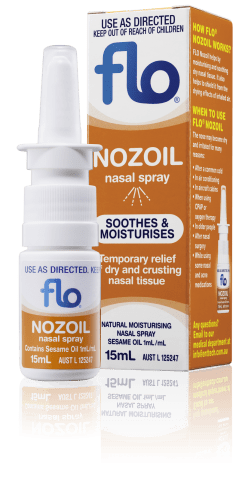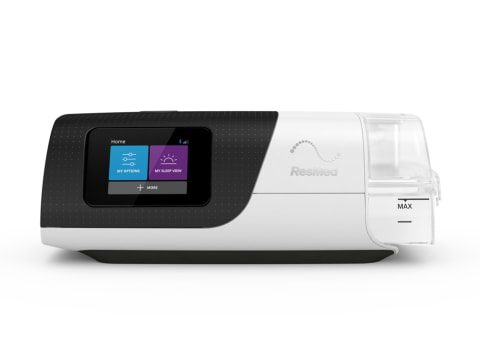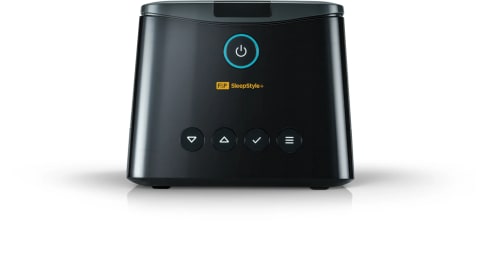How does a CPAP Machine work
How Does a CPAP Machine Work?
If you’ve recently been diagnosed with sleep apnea, you might be wondering exactly how a CPAP machine helps you breathe more easily at night. CPAP therapy has been a game-changer for millions of Australians living with obstructive sleep apnea, providing effective relief from symptoms like snoring, daytime sleepiness, and disrupted sleep. But what’s actually happening behind that soft hum of your bedside machine?
On this page, we’ll walk you through how CPAP therapy works, step by step, from why your airway collapses in the first place to how modern machines, like the ResMed AirSense 11 AutoSet and Fisher & Paykel SleepStyle, adapt to your unique breathing patterns. Whether you’re a first-time user or have been using CPAP for years, you’ll find helpful tips and insights to make therapy more comfortable and effective.
Sleep Apnea Causes Airways to Collapse
Sleep apnea occurs when the muscles in your throat relax too much during sleep, causing your airway to partially or fully collapse. This blockage prevents airflow, leading to breathing pauses (called apneas) and repeated awakenings as your body fights to reopen the airway. You might not even remember waking up, but you’ll definitely feel the effects the next day: fatigue, poor concentration, and headaches are all common signs.
When your airway collapses, oxygen levels drop and the brain sends a signal to wake you up just enough to restore breathing. This cycle can repeat dozens or even hundreds of times each night, disrupting the deep sleep your body needs. Left untreated, sleep apnea can contribute to serious health problems like high blood pressure, heart disease, and even stroke.
If you or your partner notice loud snoring, gasping, or restless sleep, it’s important to talk to a healthcare professional. A sleep study can diagnose sleep apnea and guide you toward the right treatment plan.
Continuous Airflow Helps Keep Airways Open
CPAP stands for Continuous Positive Airway Pressure. A CPAP machine works by delivering a steady stream of air through a mask that you wear while sleeping. This air pressure acts like a splint, gently holding your airway open and preventing it from collapsing. Think of it as a supportive brace for your throat, keeping it open so you can breathe normally all night long.
This continuous airflow is calibrated to your individual needs, ensuring it’s strong enough to keep the airway open without being uncomfortable. With the airway held open, your breathing remains steady and uninterrupted, reducing or even eliminating snoring and sleep disruptions.
Auto-Adjusting CPAPs Detect Breathing Patterns
Auto-adjusting CPAPs also called APAPs are a popular choice for many users because they automatically adjust the pressure based on your breathing throughout the night. Machines like the ResMed AirSense 10 AutoSet and the Fisher & Paykel SleepStyle+ Auto use advanced sensors to detect when your airway might be collapsing and gently increase the pressure to keep it open.
This means that if you shift positions or enter a sleep stage where your airway is more prone to collapse, the machine will respond by increasing the pressure. If your airway stabilises, it can lower the pressure to make breathing easier and more comfortable.
Auto CPAPs are especially helpful if your sleep apnea varies from night to night or is influenced by factors like allergies or alcohol consumption. If you’re curious about switching to an auto-adjusting model, Sove CPAP Clinic can help you find the perfect fit and ensure it’s set up properly.
Fixed-Pressure CPAPs Deliver Constant Pressure A
While auto CPAPs adjust to your needs, some users prefer the consistency of a fixed-pressure CPAP. These machines are set to one pressure level, determined during a sleep study or titration session. This level is carefully chosen to keep your airway open all night long.
Machines like the ResMed AirSense 10 Elite are an excellent example of fixed-pressure devices. They’re reliable, easy to use, and often preferred by users who find variable pressure distracting or unnecessary. Fixed-pressure CPAPs are also a popular choice for people whose apnea is stable and doesn’t vary much from night to night.
Even with a fixed-pressure CPAP, it’s important to monitor how you feel. If you notice symptoms like continued snoring or daytime sleepiness, it might be time to reassess your pressure setting.
ALWAYS FOLLOW THE DIRECTIONS FOR USE. CPAP is used for Obstructive Sleep Apnoea treatment. When considering whether a sleep study or CPAP is right for you, speak to your doctor. Medicare criteria and T&Cs apply.
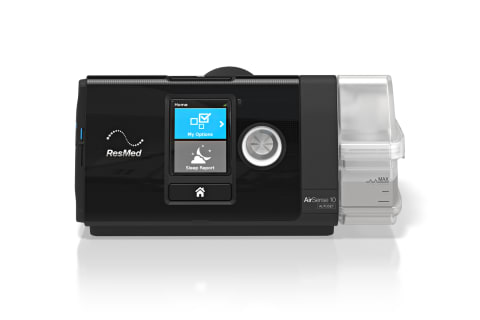 Further $50 Off with code "VALENTINES50"
ResMed AirSense 10 AutoSet 4G CPAP Machine
Further $50 Off with code "VALENTINES50"
ResMed AirSense 10 AutoSet 4G CPAP Machine
Frequently Asked Questions
How Is Obstructive Sleep Apnea (OSA) Different from Other Types of Sleep Apnea?
Obstructive Sleep Apnea (OSA) is the most common form of sleep apnea. It happens when the muscles in your throat relax too much during sleep, causing the airway to narrow or close completely. Central Sleep Apnea (CSA), on the other hand, involves the brain not sending proper signals to the muscles that control breathing. There’s also Complex Sleep Apnea Syndrome, a combination of both OSA and CSA.
Each type requires different approaches to diagnosis and treatment. OSA is usually managed with CPAP therapy, while CSA may need more advanced solutions, including adaptive servo-ventilation (ASV) machines or medical evaluation for underlying causes. At Sove CPAP Clinic, we help interpret your results and match you with the most suitable treatment approach for your condition.
Can Children Have Sleep Apnea and Use CPAP Machines as Treatment?
Yes, children can have sleep apnea, although it’s less common than in adults. Pediatric sleep apnea is often linked to enlarged tonsils or adenoids, obesity, or genetic conditions. Symptoms may include snoring, restless sleep, bedwetting, and behavioural issues such as inattention or hyperactivity.
In many cases, surgical removal of the tonsils and adenoids can resolve the issue. However, when surgery isn’t appropriate or doesn’t fully resolve the condition, CPAP therapy may be recommended. Special CPAP machines and child-sized masks are available to ensure a safe, comfortable fit. A sleep specialist should always oversee treatment, and parents should receive support and education to help their child adapt to therapy. Sove CPAP Clinic can provide guidance and equipment recommendations for young patients.
Are Fixed-Pressure or Auto-Adjusting CPAP Machines More Suitable for Sleep Apnea?
Both types of CPAP machines can be effective, and the best option depends on your individual needs. Fixed-pressure machines are often prescribed after a sleep study determines the exact pressure required to keep your airway open. They’re simple, reliable, and often more affordable.
Auto-adjusting CPAPs (APAPs) use built-in sensors to detect breathing patterns and automatically adjust pressure. This can be more comfortable for new users or for those whose pressure needs vary. APAPs also provide flexibility if you change sleep positions, experience congestion, or go through lifestyle changes like weight gain or loss.
At Sove CPAP Clinic, we can help you choose between these options based on your sleep study results, medical history, lifestyle, and preferences. We’ll make sure your machine supports your comfort and long-term success.
Do Lifestyle Changes Complement the Use of CPAP Machines for Sleep Apnea?
Absolutely. While CPAP therapy is the most effective treatment for moderate to severe OSA, lifestyle changes can enhance results and even reduce the severity of symptoms.
These include:
- Maintaining a healthy weight
- Reducing alcohol intake
- Avoiding sedatives before bed
- Sleeping on your side rather than your back
- Quitting smoking
- Establishing a consistent bedtime routine
These changes help keep your airway clear and reduce the likelihood of apnea events. They also contribute to improved overall health, energy levels, and emotional well-being. When combined with consistent CPAP use, they can lead to better sleep quality and long-term improvement.
How Can I Travel Conveniently When I Have to Manage Sleep Apnea?
Travelling with CPAP equipment is entirely manageable with a bit of planning. Many modern CPAP machines are compact, lightweight, and come with travel cases. There are even travel-specific CPAP models with battery options for camping, long flights, or places without power.
Airlines typically allow CPAP machines as a medical device, meaning they don’t count as part of your luggage limit. Be sure to carry your CPAP in your hand luggage and bring a copy of your prescription or a medical letter if needed. You can also invest in portable power solutions and universal adaptors for overseas use.
Can I Buy a CPAP Machine from Sove CPAP Clinic Without a Prescription?
In Australia, CPAP machines are classified as medical devices and typically require a prescription or recommendation from a sleep physician. This ensures you receive the correct pressure settings and appropriate treatment for your condition.
That said, Sove CPAP Clinic can assist you throughout the entire process—from referral to equipment setup. If you’ve already had a sleep study, we can review your results and help you select a machine suited to your therapy needs. Our priority is your safety and long-term treatment success, so we make the process easy and supportive.
Can I Reduce CPAP Noise with Accessories or Positioning?
CPAP machines are designed to be quiet, but sometimes the sound of airflow or slight vibrations can be noticeable. Here are a few tips to reduce noise:
- Ensure your machine is on a stable, flat surface
- Use a CPAP-specific nightstand mat to absorb vibration
- Check for air leaks in your mask or tubing
- Clean filters regularly and replace as recommended
- Consider relocating the machine slightly away from your bed
Some machines also have ultra-quiet motors or noise-dampening features. If you’re sensitive to sound or your partner is a light sleeper, these small adjustments can make a big difference.
</script>




